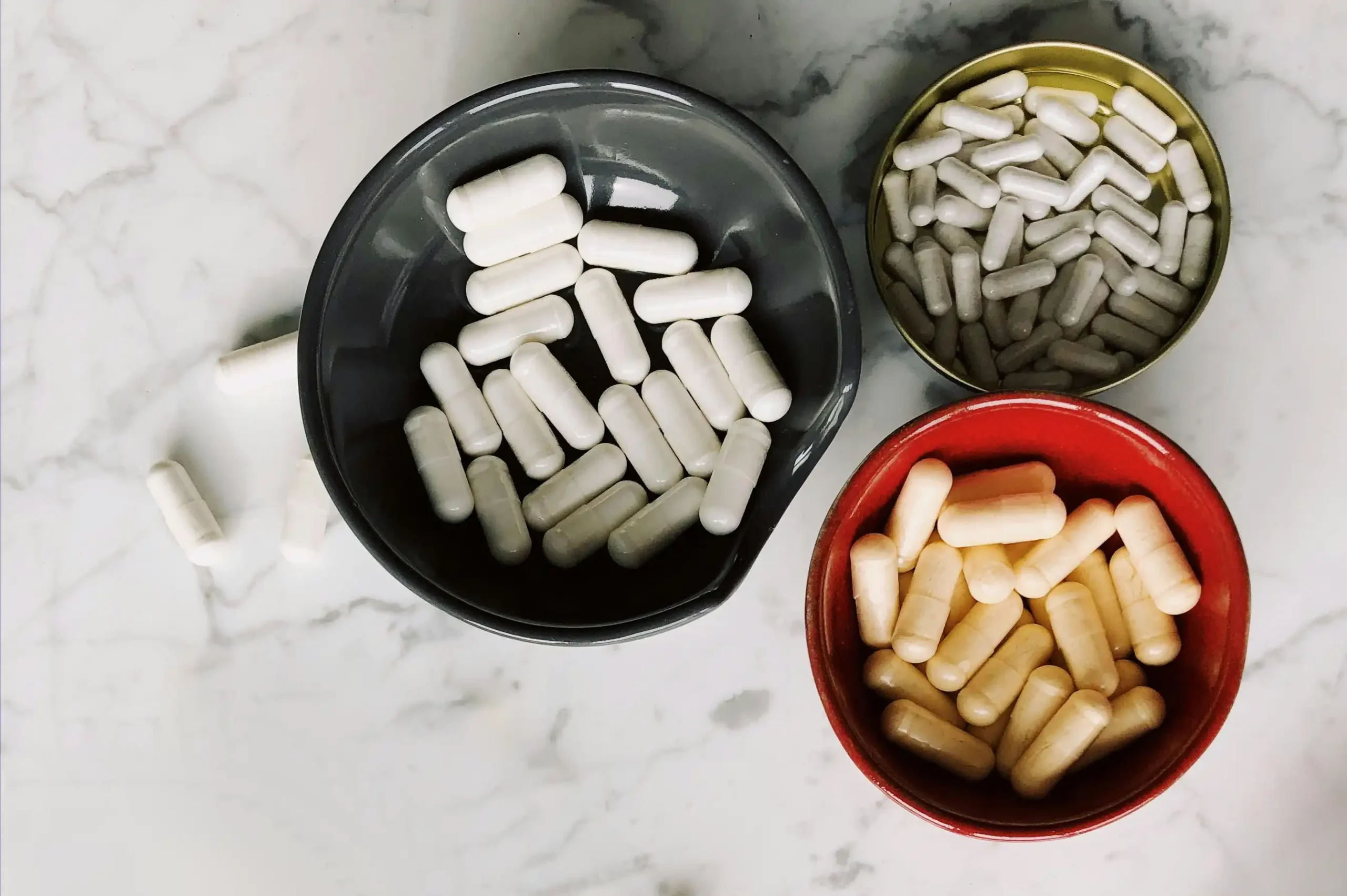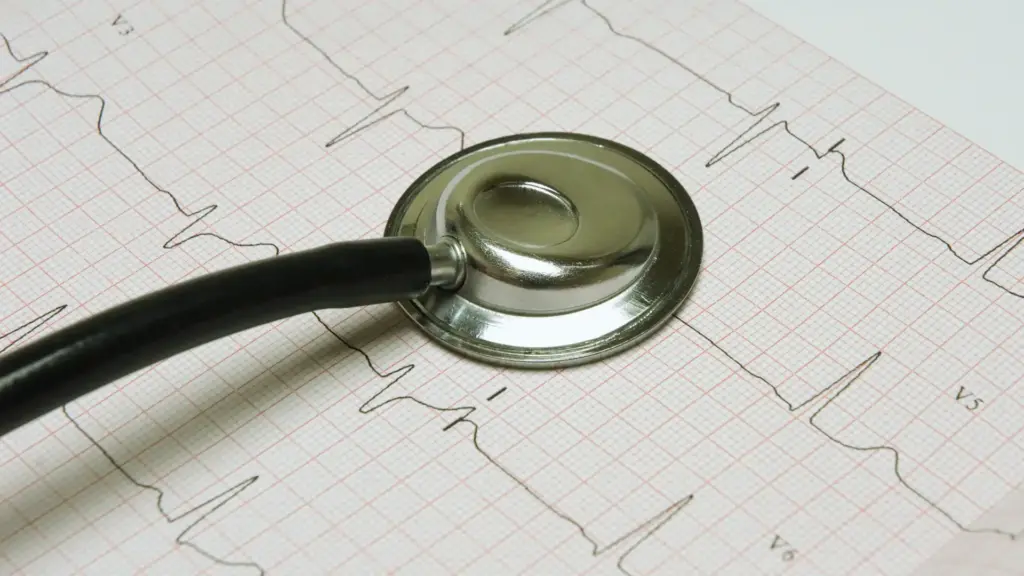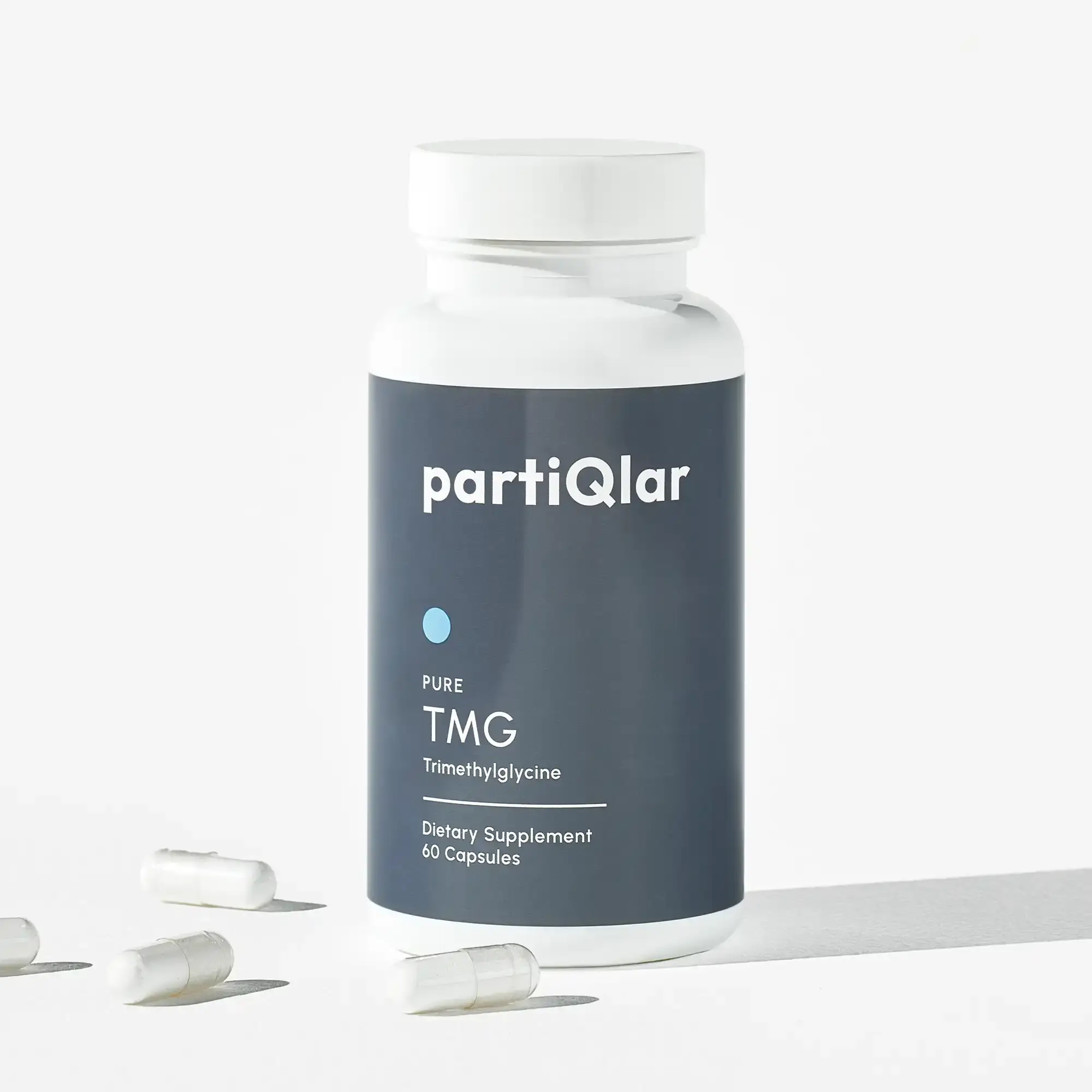NMN is praised for its potential to unlock longevity with improved energy metabolism and cellular function, including enhanced blood glucose tolerance and inflammation suppression to get improved inflammatory markers.
What Are TMG Supplements? Benefits, Dosage & Side Effects
- Science
- October 17, 2024
- Jan Vincent Beltran, PhD

Related Product
TMG – Key Takeaways:
- TMG (trimethylglycine) is a naturally occurring compound derived from the amino acid glycine. As a methyl donor, it is characterized by three methyl groups on its structure which it can donate to support various biological processes.
- TMG can support heart health and longevity. It is found in dietary sources and can be produced by our bodies; however, it declines through aging.
- Health benefits of TMG supplementation include reducing homocysteine levels, supporting cardiovascular health, enhancing athletic performance, and replenishing methyl groups on a plethora of important molecular pathways.
- NMN supplementation is a popular anti-aging strategy for boosting NAD+ levels, but it may deplete our reservoir of methyl groups that are essential for proper gene activation. Combining TMG and NMN supplementation may provide synergistic benefits.
Unlock the power of TMG (trimethylglycine) for heart health and longevity! This essential methyl donor helps lower homocysteine, boost athletic performance, and enhance overall well-being. Learn how TMG complements NMN to maximize your anti-aging strategy and support a healthier you.
TMG Supplement - for Healthy Heart and Longevity
Did you know that by age 60, you’d most likely already have a heart disease?
According to the American Heart Association (AHA)¹, cardiovascular disease affects nearly 8 in 10 at age 60-79, and this rises to about 9 in 10 over 80 years old. This is very alarming—it means your chance of having heart disease after 60 is pretty high (if you’re not going to do something about it).
Here’s some good news: One natural product that has shown promise in supporting heart health is Trimethylglycine (TMG) supplement. TMG, also known as betaine, is not only found in dietary sources like whole grains, but it’s also naturally produced by the body. TMG supports vital cellular functions, may help lower the risk of cardiovascular diseases, and promote overall health as we age.
Let’s dive deep into the science behind betaine, how it works, TMG benefits, and its usage, to unlock longevity powered by a healthy heart.

What is TMG?
Trimethylglycine (TMG), also known as betaine or betaine anhydrous², is a naturally occurring compound derived from the amino acid glycine; essentially, it is glycine but with have three extra methyl groups on its structure that it can freely donate to other molecules. TMG is found in foods like beets, spinach, and quinoa, but your body can produce it too. It plays a key role in various biological processes.
TMG plays a crucial role in methylation.
Methylation refers to the act of transferring a “methyl group” (made of one carbon and three hydrogen atoms) to other molecules like proteins and DNA. It is very important—depending if a molecule is methylated (methyl group added) or unmethylated (methyl group removed), it can change its function or how it acts inside the cell. For example, a methylated DNA may prevent the gene it encodes from being expressed. Another example is unmethylated homocysteine, a compound linked to heart disease at high levels. In this case, TMG works by transferring its methyl group to homocysteine to convert it to the harmless methionine form.
TMG amino acid also serves as an osmolyte.
This means it helps to maintain the body’s fluid balance. Osmolytes protect cells by maintaining their volume and water balance under stressful conditions, such as dehydration or a high-salt environment. This dual role as both a methyl donor and osmolyte makes TMG vital for supporting heart health and overall cellular stability.
Health Benefits of TMG
Trimethylglycine (TMG) offers a range of potential health benefits due to its role as a methyl donor and osmolyte.
Reducing Homocysteine Levels
Elevated homocysteine levels are linked to an increased risk of heart disease and is a strong predictor of cardiovascular mortality³.
TMG ameliorates this risk by helping in the conversion of homocysteine into methionine, resulting in lowered homocysteine levels (potentially reducing the risk of cardiovascular problems). A meta-analysis of five clinical trials⁴ with a total of 206 participants confirmed that betaine supplementation of at least 4g/day for at least 6 weeks can reduce homocysteine levels.
Supporting Cardiovascular Health
Beyond homocysteine reduction, TMG may also directly benefit heart health by improving endothelial function, and the lining of blood vessels. This can help maintain vascular integrity, healthy blood pressure, and smooth blood flow.
As shown by scientists, betaine supplementation can attenuate atherosclerotic lesions in mice⁵. Findings from human epidemiological studies⁶ indeed support that higher betaine intake reduces the risk of cardiovascular diseases.
Enhancing Athletic Performance
Cardiovascular fitness directly correlates with physical fitness. For athletes and active individuals, TMG may enhance performance by improving endurance and reducing muscle fatigue, making those tough workouts a bit easier. This is backed by multiple recent studies that tested betaine’s potential to improve athletic performance.
In a 2013 study⁷, a 6-week 2.5g/day betaine supplementation improved the body composition, arm size, and bench press capacity of strength-trained men.
In a 2021 clinical trial⁸, a 14-week 2g/day betaine supplementation increased the maximal oxygen uptake, anaerobic peak power, muscular strength, and sprint ability of professional soccer players.
And in 2022, another study⁹ revealed that a 6-week 5g/day betaine supplementation improved the muscular performance of male collegiate athletes. But, beyond athletes, TMG could be a game-changer for the elderly where frailty is a major problem.
Promoting DNA Methylation
Methylation of the DNA is required for it to function normally. Methylation status is crucial to activating or deactivating our genes. TMG can provide the methyl groups on DNA to control the activation of specific genes, as well as support and protect our organs’ normal functions. Meanwhile, it is thought that NAD+ boosting compounds/supplements like NMN are believed to deplete our methylation reservoir, resulting in a deficiency. With TMG, methylation levels can be restored to normal.
Importantly, a dysfunctional methylation can lead to disease development. For example, patients with multiple sclerosis (MS) have depleted betaine levels in the brain. When tested in a mice study¹⁰, betaine supplementation was found to provide neuroprotection in MS by restoring the methylation which then led to alleviation of neurological disability. Hence, as a methyl donor, TMG is like giving your body extra gear when you need it most.
While research is ongoing, the potential trimethylglycine benefits currently uncovered are promising. As always, it’s essential to consult with a healthcare professional before making significant dietary or supplement changes.
TMG and NMN Synergy
The combination of TMG and NMN is potentially a very efficient supplementation strategy that balances and enhances the benefits of both supplements in promoting longevity.
NMN is widely known for its role in boosting NAD+ levels by up to 240%, which supports cellular energy production and anti-aging processes. However, one lesser-known effect of NMN supplementation is the potential depletion of methyl groups in the body.
This is where TMG comes into play. As a methyl donor, TMG helps replenish the methyl groups that NMN can deplete. Methylation is essential for many critical biological processes. Without sufficient methyl groups, these processes can become compromised, potentially diminishing the benefits of NMN or compromising health effects. In fact, Dr. David Sinclair takes 500-1,000 mg TMG per day as a precautionary measure for his NMN supplementation.
By supplementing with TMG alongside NMN, you can maintain balanced methylation levels, ensuring that your body continues to function optimally while reaping the full benefits of NMN. Think of TMG as the perfect partner that keeps your NMN supplementation on track.
TMG Dosage and Usage Recommendations
General Dosage: Typically, dosages of the best TMG supplements in the market range from 500 mg to 3,000 mg per day. If it is your first time supplementing for TMG, you may start with a lower dose and gradually increase it to the recommended dosage on the product label while monitoring for any TMG side effects, or as guided by your doctor.
Here’s a general overview of recommended TMG dosages and usage:
Purpose | Dosage | Explanation |
| For General Wellness | 500-800 mg/day (TMG) | If you’re looking just for a slight daily boost, taking a lower dose of TMG will convert some of your existing homocysteine into methionine, which helps build more proteins. |
| For NMN Support | 500-1000 mg/day of TMG + 1000 mg/day of NMN | This helps replenish the methyl groups that NMN might deplete, ensuring balanced methylation and maximizing the benefits of NMN. |
| For Homocysteine Reduction | 1000-3000 mg/day (TMG) | A high intake of TMG reduces homocysteine levels significantly. However, note that for hyperhomocysteinemia (elevated homocysteine levels), always follow your doctor’s medical advice for proper medical management. |
Timing and How to Take: TMG can be taken with or without food, depending on your preference. Some people find it more comfortable to take it with meals to avoid any potential stomach upset. There’s no best time to take TMG supplement, it’s flexible—just make sure you’re consistent with your timing each day for the best results.
Taking TMG is straightforward, and incorporating it into your routine is easy which can help you achieve your health goals more effectively.
Side Effects and Precautions
TMG (betaine) is well-tolerated and likely safe at high doses, up to 6 grams daily.
However, some individuals may experience the following mild potential side effects at high doses:
- Stomach upset
- Bloating
- Nausea
- Slight increase in cholesterol levels (rare)
Also take note if you have a family history of heart disease, kidney disease, other chronic conditions, or if you are taking medications, inform your healthcare provider before adding TMG to your regimen. Start with a lower dose and gradually increase as needed, while monitoring for any adverse reactions. If you have a genetic test on MTHFR mutation, let your doctor know too to ensure that TMG is safe and appropriate for your specific health needs.
TMG Final Thoughts
As heart disease is the leading cause of death globally, it is imperative to protect your heart while it’s early.
TMG—or trimethylglycine, betaine, betaine anhydrous—is a versatile compound that packs a powerful punch when it comes to supporting heart health and overall well-being. With TMG supplementation, you can lower your homocysteine levels, support your cardiovascular health, enhance your physical performance, and replenish your methyl groups reserve for various molecular pathways—it can be a valuable addition to your supplement regimen.
Along with a healthy lifestyle, incorporating TMG into your routine could make a significant difference in protecting your heart as you age. After all, a healthy heart is a happy heart!
FAQ - Trimethyglycine (TMG)
What Is TMG Supplement Used For?
TMG supplements are primarily used to support heart health by reducing homocysteine levels, a risk factor for cardiovascular disease. Additionally, TMG may benefit athletic performance, liver function, and cellular protection due to its role in methylation and osmolyte processes.
Is TMG The Same As Creatine?
No. TMG and creatine are distinct compounds with different primary functions. Confusion surrounding TMG and creatine comes from the fact that both of them are osmolytes; however, they work differently and have different health benefits. TMG primarily supports methylation and osmolyte processes, affecting liver function, heart health, and cellular protection. Creatine primarily enhances energy production in muscle cells for improved athletic performance.
What Foods Are High In TMG?
Foods rich in TMG include beets, spinach, wheat germ, shellfish, some whole grains, and leafy green vegetables. However, the concentration of TMG in these foods can vary. According to USDA, wheat bran and wheat germ have the highest betaine concentration (>1gm/100g).
Will TMG Lower Blood Pressure?
While direct studies on TMG’s effect on blood pressure are limited, its potential to support endothelial function, the lining of blood vessels, may contribute to blood pressure regulation. However, more research is needed to establish a definitive link between TMG supplementation and blood pressure reduction.
Explore Products
Related Articles
NMN is praised for its potential to unlock longevity with improved energy metabolism and cellular function, including enhanced blood glucose tolerance and inflammation suppression to get improved inflammatory markers.
NMN is praised for its potential to unlock longevity with improved energy metabolism and cellular function, including enhanced blood glucose tolerance and inflammation suppression to get improved inflammatory markers.

